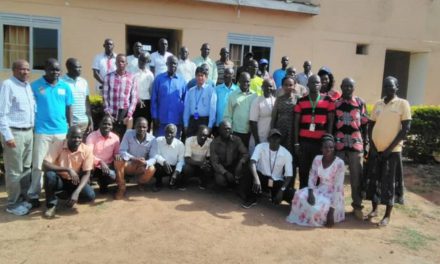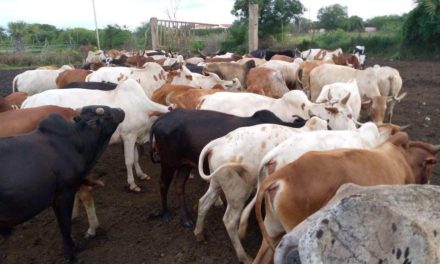
Desert Locusts: Govt to use aerial spray to kill the insects

JUBA – South Sudan: Swarms of desert locusts invaded Juba, Kondokoro and other areas on the outskirts of the capital last week, according to both residents and agriculture ministry officials. Government says it would use plane for an aerial spray to kill the insects.
Resident Julie John witnessed the locust infestation hit Juba about a week ago. “I was in my room and then I heard so much noise outside, people shouting and screaming. So I decided to go out to check what was going on. Just as I reached at the door I realized that the sky was totally covered in locusts. Thousands and thousands of locusts that cannot be counted,” Julie narrated.
She said the locusts flee from Munuki moving west towards Gudele 2 suburb in Juba.
The desert locusts initially crossed into South Sudan in February this year through Lobone, Magwi, Panyikwara and Owiny-Kibul villages in Eastern Equatoria state near the borders of Kenya and Uganda. A swarm of locusts can consume the same amount of food as 20 elephants in a day.
Abdelrahman Tamim, director general for plant protection in South Sudan’s Agriculture and Food Security Ministry says the insects do not pose much a threat now since it is dry season and there are no crops. Tamim says a plane from the Desert Locusts Control Organization for Eastern Africa or DLCO should be arriving this week to spray the locusts.
“We are now in a position of enough insecticides which is being used in our region here for aerial spray, ULV formulation which is chliropisyphos. We have requested one plane to be based in here in Juba from DLCO.” Tamim said noting that since South Sudan is a member state, DLCO would receive the plane as soon as the Desert Locusts became a problem.
“The plane will come and base in Juba and whenever there is any report of flying invasion of locusts, it will go and do the job.”
The ULV or Ultra-low volume formulation Tamim refers to is a method of spray application where a small amount of chemicals are sprayed to treat a large area for pests with a ULV fogger that releases a water-based pesticide.
Experts are researching a biological control and other non-chemical means to control locusts but say they’re primarily focused on insect growth regulators since locusts can quickly migrate away from most natural enemies. But an American professor who lectured at Khartoum University says the best way to control the pests is by spraying small, concentrated doses.
Agricultural expert Professor Rick Bein of Indiana University says along with chemical spraying ducks can help control swarms of locusts in East African countries and Southwestern Asia. He says China is reportedly preparing to deploy an estimated 100,000 ducks to neighboring Pakistan to help curb the swarms of crop-eating locusts that invaded Pakistan in February.
Bein says a single duck can eat more than 200 locusts a day and be more effective than pesticides. “If you have a lot of ducks around in the beginning they will be eating the young locusts before they became a problem. So if people raised ducks on regular basis in South Sudan and everybody has ducks then they would probably reduce the problem but you just don’t get ducks right away. How do you handle locusts when they are already a problem? I think spraying will work but it’s expensive,” Bein told The Insider.
Giant nets, flamethrowers, lasers and even huge vacuums all have been proposed in the past, but those things usually do not significantly reduce population levels over large areas according to Bein.
Abdelrahman Tamim, director general of plant protection in South Sudan?, says the ministry of agriculture aims to destroy the locusts at the larva stage to minimize breeding.
Our plan is always to target the weakest point in the lifecycle of the locusts because we cannot chase these adult Locusts moving around, especially if they are matured, they will not cause much damage
We have no crops now. Our fear is from the mature ones that may lay eggs that will hatch within 3 weeks or 4 weeks from now. These new generation will destroy the crops so we are doing a lot of monitoring to locate where they have laid eggs.
“It’s important to kill the mature locust that will lay eggs and hatch in about a month which would destroy South Sudan’s crops,” Tamin said.




















Thanks for sharing deco # shared to https://Bidax.blogspot.com